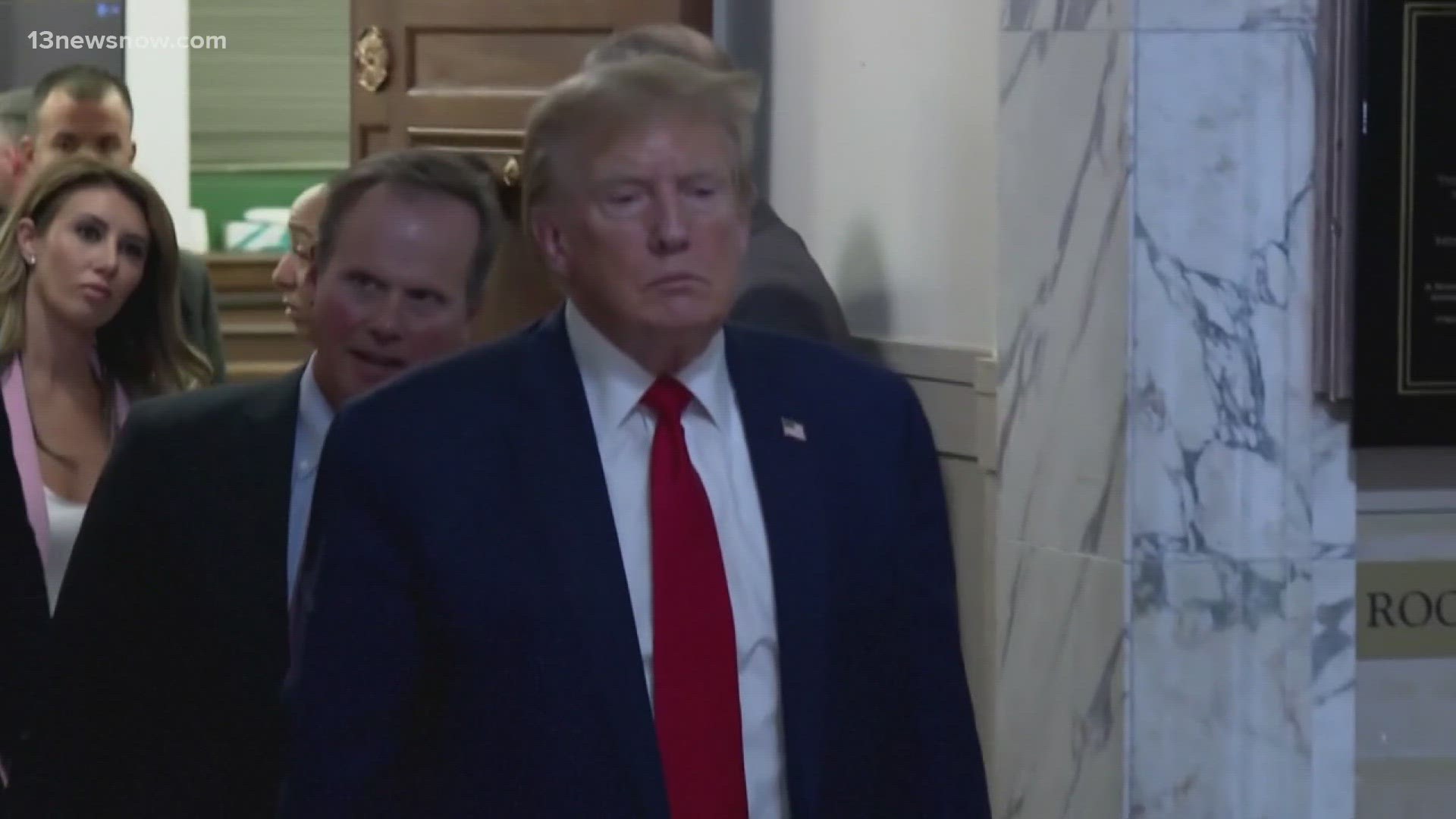NORFOLK, Va. — A federal judge has dismissed a Virginia lawsuit seeking to block former President Donald Trump from being on the Virginia ballot for the upcoming presidential election.
The lawsuit focuses on Section 3 of the 14th Amendment of the United States Constitution, arguing that former President Trump should be "disable[ed]" from seeking the office he once occupied because he "engaged in insurrection or rebellion against" the United States Constitution.
The amendment's section, in its entirety, reads:
No person shall be a Senator or Representative in Congress, or elector of President and Vice-President, or hold any office, civil or military, under the United States, or under any State, who, having previously taken an oath, as a member of Congress, or as an officer of the United States, or as a member of any State legislature, or as an executive or judicial officer of any State, to support the Constitution of the United States, shall have engaged in insurrection or rebellion against the same, or given aid or comfort to the enemies thereof. But Congress may by a vote of two-thirds of each House, remove such disability.
In Colorado, the state's Supreme Court there ruled in support of the former President's removal from the upcoming primary ballot. Since then, he's been re-added to the ballot following an appeal by the Colorado Republican Party.
According to Brad Jacob, Regent University's Associate Dean of the School of Law, this particular lawsuit never got to the point where the merits of the question at hand were considered by Virginia courts.
“What courts said are, 'Maybe Trump is barred by Section 3, maybe he isn’t. But the two plaintiffs haven’t suffered any particular harm," Jacob told 13News Now.
Procedural deficiencies
In the judge's dismissal, Judge Leonie Brinkema noted "procedural deficiencies that have plagued" the plaintiff's prosecution, including one example in which the omission of one plaintiff's email address and phone number on filings "prevents defendants from communication with him in a timely manner."
According to the latest filings, the plaintiffs cited medical complications as one reason why they needed more time to litigate the claims in the lawsuit.
"'As the Court has explained to plaintiffs in a previous Order, '[i]f plaintiffs are unable to litigate their claims at this time, they may voluntarily dismiss this civil action and refile.... when they are prepared or when they are able to retain adequate counsel,'" it adds.
Lack of standing
The ruling states that Article III of the 14th Amendment requires plaintiffs to allege:
- an "injury in fact
- a "casual connection between the injury and the conduct complained of"
- a likelihood that the injury "will be redressed by a favorable decision"
Jacob argued that based on the recent filing, the judge ruled that their argument alleging injury and harm was not unique or different from that of any other voter in Virginia.
“'Standing' means the person bringing the suit has to have suffered some particular injury. Even if the government is doing something illegal or unconstitutional you can’t challenge it unless you have a plaintiff who is specifically harmed," Jacob said.
As for the merits of the question of whether the Jan. 6, 2021 insurrection should prevent Trump from seeking office again, this lawsuit did not allow the case to advance even that far.
“Virginia court threw the case out before getting to whether it even applies to Donald Trump," he added.
"Federal courts across the country have consistently held that individual citizens do not have Article III standing to challenge whether another citizen is qualified to hold public office," the ruling reads.
"At least five additional federal courts have concluded that citizens attempting to disqualify individuals-- including former President Trump-- from participating in elections or from holding public office based on the January 6, 2021 attack on the United States Capitol lacked standing."

